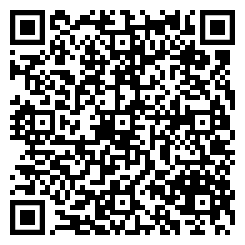Scan the QR code to download Dobin!


There's nothing more scary than checking your account when you dread seeing the balance amount.
Perhaps you know you spent a little too much on holiday. Maybe you went a bit overboard during the 9.9 Lazada sale, said 'yes' to a few too many social occasions, or simply struggled to make ends meet even at the best of times.
If this sounds like you, you're not alone in your fear of getting your money matters straightened out. In fact, in Singapore, 55.2% of adults say they are financially illiterate, and 52% don't know how much they spend every month.
In this comprehensive guide, we'll look at five crucial things you need to do to improve your financial situation such as defining your objectives and setting goals, creating a budget that you can stick to, building a safety net for emergencies – and more. Let’s dive in!
First up, let's get it clear what we're aiming for.
Defining your financial goals and objectives is a critical first step in managing your money. A clear understanding of what you want to achieve helps you measure your success, stay motivated, and keep on track.
In this section, we'll delve into the importance of savings and financial goals. Here's our step-by-step guide to setting your financial objectives the Dobin way.
Firstly, setting realistic and achievable goals without understanding your current situation is impossible. Look closely at your income, expenses, debts, assets, and savings. Then, drill down into your necessary spending (things you have to spend each month, like your rent and bills) and your discretionary spending (spending on things you like, such as your hobbies, having fun, and new clothes). How much money do you have to spend each month, and how much do you have left over?
Once you have these figures, you can start thinking about how much money you could put away each month to help work towards your financial goals. Remember – you are allowed to have fun too! So don't think all your discretionary income should go towards your savings. Give yourself a little breathing room, and you'll likely stay on track.
Once you've assessed your current situation, it's time to think about your objectives in the short term — about two years or less.
Think about what you'd like to do over the next year or so and how you can get there. Your short-term goals might include things like building an emergency fund, paying off a small credit card debt, saving for a summer vacation, or putting together a down payment on a new car.
Don't get caught up in big ambitions that are out of your reach! The biggest mistake we see people make in setting short-term goals is thinking they can save more if they cut out all their discretionary spending. That's not realistic! Don't put too much pressure on yourself, and break down your goals into smaller objectives to keep your momentum going.
Remember, setting short-term goals is something you should do every year. Once you've achieved something, your work isn't done. Give yourself a little break to celebrate, then set another goal to work towards.
Now it's time to consider what you'd like your financial future to look like by setting long-term goals over the next five years or more. You might think about long-term objectives that are more significant, such as your retirement fund, buying a house, or funding your children's education.
To set a long-term goal, think about how much money you need, then work backward to see how much you'd have to save per month to reach it. This can be a more complex calculation than saving for a short-term goal, as it's likely that the prices will change over time due to inflation. For instance, if you'd like to buy a house in the next ten years, house prices will likely increase from where they are now, so you'll need to save more.
On the other hand, if you’re parking your savings in a high-interest savings account you'll also earn compound interest on large sums, helping you save faster.
Remember to factor this into account when you make your calculations on your long-term goals.
Now you've got an idea of what you'd like to achieve over the next few years, it's time to consider the practicalities of getting there. To do this, make sure your goals are SMART: Specific, Measurable, Achievable, Relevant, and Time-bound.
Avoid saying things like, "I want to save money someday." Although this is a goal, it's unlikely to be achieved as you cannot measure your success or hold yourself accountable. Instead, you need to make sure that your goals are clear, specific, and measurable. A better SMART goal would be something like this:
"I want to reduce my monthly discretionary spending by 15% over the next three months to add $600 to my emergency fund."
This is clear, realistic, and has an easy way to be measured within a deadline. As a result, it's much easier to stick to and achieve.
Even though we have our goals and objectives, life doesn't always go to plan. Perhaps you get a dream job with a huge pay raise sooner than you thought! Or perhaps you must take some time off work to recover from an illness. Whatever it is, your goals and objectives are never set in stone and can change as your life changes.
Dobin recommends keeping track of your long-term (and short-term) goals in a notebook. It's great to have a written record of your goals over time, as you can see your progress and get the motivation you need to stick to it.
Now that you've got a grasp on what you'd like to achieve over time, let's look at your day-to-day spending habits and set a realistic budget to help you achieve your financial goals.
Firstly, it's important to regularly track your income and expenses. This means looking honestly and frankly at how much money you spend every month and how much you earn, then categorizing your outgoings into necessary and discretionary spending.
Don't worry if you're reading this right now, unsure of your income and spending habits. Dobin is an easy solution to this! Just download the app and link your bank accounts to your Dobin expense tracker app dashboard.
Dobin will automatically categorize your transactions so you can see a full view of your finances in just a few clicks. No need to worry about wasting time tracking your finances manually or setting up a complex spreadsheet — Dobin is a free expense tracker app that does all the hard work for you.
![]()
Image 1: Dobin helps you view a complete picture of your financial data in the app. Tracking transactional information from all the banks you link to Dobin gives you a holistic view of your finances. With this expense tracker app, you don't have to mess around with boring spreadsheets to set your budget!
Once you've got the important information about how much you earn and spend every month, it's time to look for areas where you should change your habits. Maybe you spend too much on eating out every month, leaving yourself short for what matters.
Take this time to honestly and frankly reflect on the data before you. Now you see it clearly in your Dobin dashboard; what surprises you? What things can you cut from your spending that wouldn't impact your daily life too much? Maybe you could start bringing a lunch from home or invest in a coffee flask to avoid those Starbucks trips.
Over time, these small lifestyle changes can go a long way in increasing your savings.
As part of your budget, take the information you can see now and create spending categories. Split them into necessary spending and discretionary spending. Your categories might look like this:
Necessary Spending
Discretionary Spending
Most of your necessary spending will be a fixed cost. For instance, your rent payment and insurance premium are likely to be the same every month. Make sure you account for these in your budget first.
Then, consider those necessary costs that could change. Is there any way you could reduce them? Consider your spending on groceries, for example. If you love going to the supermarket and always choose premium products, you might find buying in bulk or cooking at home cheaper. Maybe a bus ticket to work is cheaper than the fuel, car tax, and parking costs – consider if you could make the switch. Another great recommendation is to check your credit card and debt payments. In the long term, you might find it cheaper to consolidate high-interest credit card debt into a lower-interest medium-term loan. Then factor these prices into your budget.
Finally, consider your discretionary spending. Could you cut back on your unnecessary monthly costs for a few months to bulk up your emergency savings fund? Could you skip that monthly restaurant meal to pay off your mortgage a little earlier? Add this to your budget.
To help you manage your budget and set a budget that works for you, you can use a budgeting method.
You might choose to follow the 50/30/20 rule, which allocates percentages of your finances into the categories given above. Perhaps you find the envelope budgeting method more suitable, where spending for each category is divided when you get your income and separated into 'envelopes' – one for housing costs, one for your transportation expenses, and so on. Or maybe you'd like to follow the zero-sum budgeting method, where every dollar is accounted for.
Whichever you choose, use it to work out how much money you have for each category and stick to it. This means tracking and updating your expenses as you spend during the month and regularly reviewing your budget when possible.

Often, people consider budgeting to be a boring exercise. No one likes missing out on something because they don't have the money to do it. It's always difficult to say no to something that we really want to do just because we have to pay bills.
But budgeting doesn't have to suck! Here at Dobin, we consider budgeting to be empowering, as it allows you to control your life without making decisions about money motivated by necessity. With the correct budget, you can have much more freedom than unfettered spending without a budget.
You can walk away from a job you hate as you know you have a well-stocked emergency fund to see you through. You can take an expensive vacation on a whim, knowing you can afford it. You can build your retirement safe in the knowledge that you can keep up your living standards in old age.
Sure, you might miss out on a couple of expensive dinners, but a budget strategy means you can build financial freedom and worry less when an emergency hits.
By now, you should have an idea of where your money goes each month and how you can start saving some of your income to build your net worth. But what exactly should you start saving for? Well, the biggest personal finance Singapore experts agree: the first thing you should do is create a well-stocked emergency fund.
An emergency fund is money you set aside to cover any unexpected or 'emergency' expenses that come out of the blue. Consider it a safety net that will help you stay on top of your finances even when something unexpected happens. Ultimately, building your emergency fund aims to avoid resorting to high-interest credit card debt or dipping into long-term investments to cover sudden financial needs.
Unfortunately, a recent survey showed that 25% of Singaporeans live paycheck to paycheck, meaning they have no savings for an emergency, and just 17% have enough to see them through a 3-month drop in earnings. Singaporeans must start to put more money aside to protect themselves and their families if the worst happens.
So, how much of an emergency fund is enough? Is it sufficient to have just a couple of thousand dollars in a savings account?
There's no 'one size fits all' approach to your emergency fund. The truth is that this all depends on your income, expenses, and current financial situation. If you're a single person with no children and low rent, then you'll need less than a family of four with an expensive monthly mortgage repayment.
Most experts recommend having a well-stocked emergency fund that will cover three or four months of expenses and a bit left over. This means that if you were ever stuck in a situation where you had no income, you would have enough to clear all you needed for three months while you got yourself back on your feet.
Don't have an emergency fund yet? That's fine, but make sure that it's a priority for you over the next few years. You can rapidly grow your savings fund by following the principle of 'paying yourself first' — setting aside your money to go into your emergency fund as soon as you get your income, then forgetting about it.
Paying yourself first helps you to prioritize saving and stay on track. Once the money is in your savings account, it's not available for you to spend on a whim.
Just as having an emergency fund is crucial for financial security, getting into good spending habits is also important.
Not every savings account is made equal. Some accounts pay you much more interest than others, and there may be great offers to take advantage of if you lock your money into a fixed savings account for a year or more.
Just a few percentage points could make the difference between accruing a couple of thousand dollars in interest and a couple of hundred dollars over time, so it's well worth your time to research and hunt around for the best interest rates.
At Dobin, we know that living frugally doesn't mean sacrificing your quality of life; it just means being extra savvy about your spending.
Great money management means waiting till the right time to make a purchase. Perhaps you could make do with your old laptop for a few months more until the Great Singapore Sale swings around and that laptop you want is reduced. Maybe switching to a credit card that rewards your spending could add up to a couple of hundred dollars of savings over the year.
And the savviest spenders know that Dobin offers unique, personalized, and tailored offers to you based on your spending habits. If you love to buy tech products or love to spend on eating out, you can trust Dobin to source offers for you in these areas, helping you save money on your usual purchases.
Our last tip for beginners starting out on their personal finance journey is to remember that financial independence doesn't happen overnight. It's not one thing you do and then forget about for the rest of your life. And it's okay if you don't know everything right away.
Being responsible with your money and managing your personal finances is a routine. It's a habit that you practice over your whole lifetime — learning a little bit more every year. With that in mind, the next best thing you can do for your personal finances is to invest your time and energy into learning more about it.
Have an open mind. Enjoy the process. Learn a little every day. By setting yourself time for continuous learning about your finances and checking in regularly with your own information, you can build great financial habits for your success.
Managing your personal finances doesn't mean that you never get to have fun. Getting your money in order is an exciting and empowering thing that allows you to live your best life responsibly.
When you have the right tools, like the Dobin app, on your side, it's easy to improve your financial literacy over time and improve your personal finances. The Dobin app is a one-stop shop that helps you understand your current financial situation, gives you full visibility of your financial information, and amp up your savings with tailored discounts and rewards.
Dobin is all about making managing your finances easy, helping you reach your financial goals sooner, and empowering you to make better financial decisions for your situation. Plus, it's free to download and use.
So, what are you waiting for? Start your personal finance journey today, and download the app now.